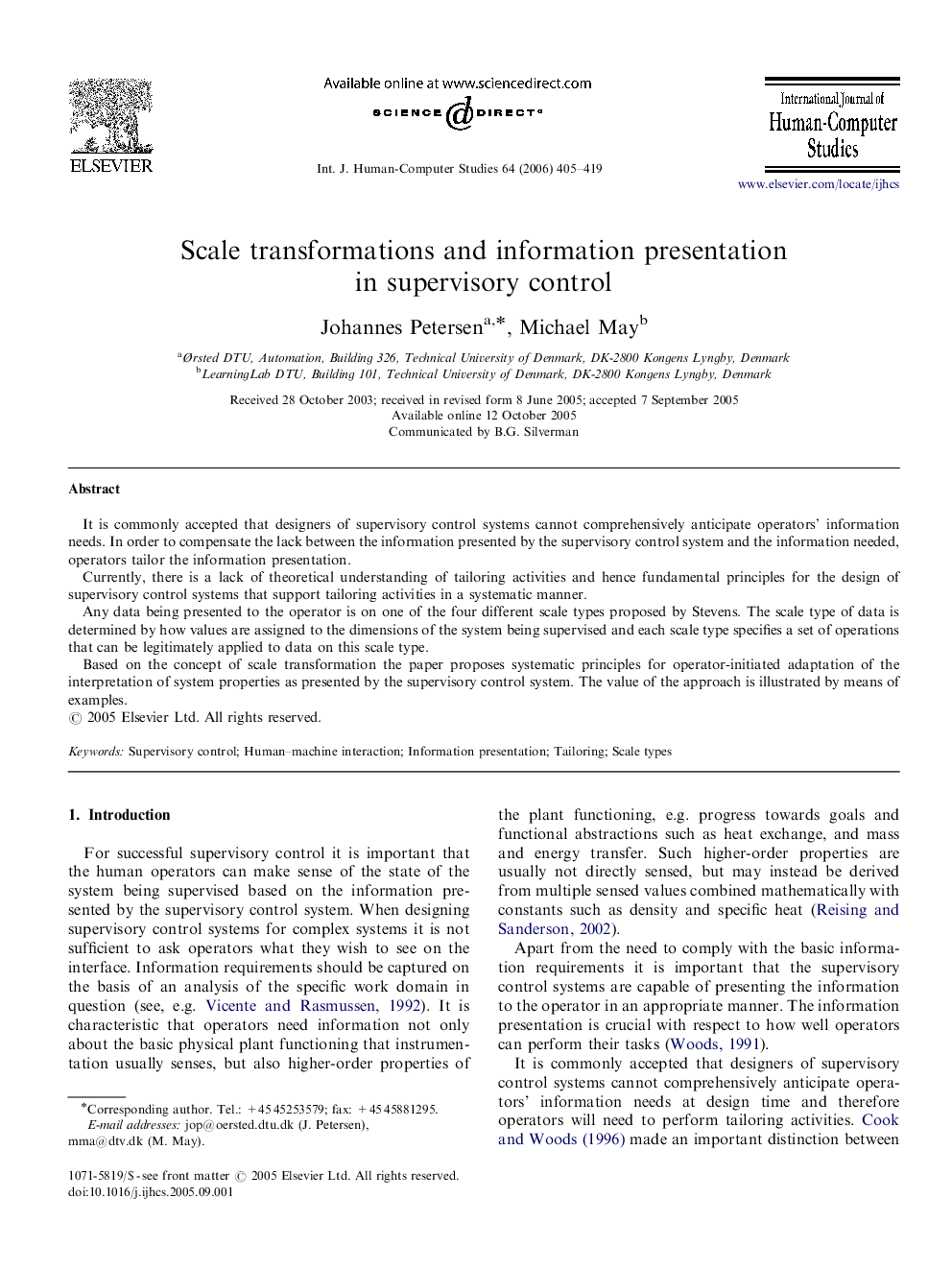| Article ID | Journal | Published Year | Pages | File Type |
|---|---|---|---|---|
| 401453 | International Journal of Human-Computer Studies | 2006 | 15 Pages |
It is commonly accepted that designers of supervisory control systems cannot comprehensively anticipate operators’ information needs. In order to compensate the lack between the information presented by the supervisory control system and the information needed, operators tailor the information presentation.Currently, there is a lack of theoretical understanding of tailoring activities and hence fundamental principles for the design of supervisory control systems that support tailoring activities in a systematic manner.Any data being presented to the operator is on one of the four different scale types proposed by Stevens. The scale type of data is determined by how values are assigned to the dimensions of the system being supervised and each scale type specifies a set of operations that can be legitimately applied to data on this scale type.Based on the concept of scale transformation the paper proposes systematic principles for operator-initiated adaptation of the interpretation of system properties as presented by the supervisory control system. The value of the approach is illustrated by means of examples.
